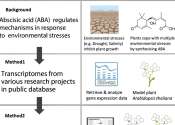Immune system protein may help defeat flesh-eating bacteria
A clever protein inside the immune system could be used as a "weapon" against a common bacteria that in extreme cases is responsible for causing deadly flesh-eating disease, scientists from the Australian National University ...







